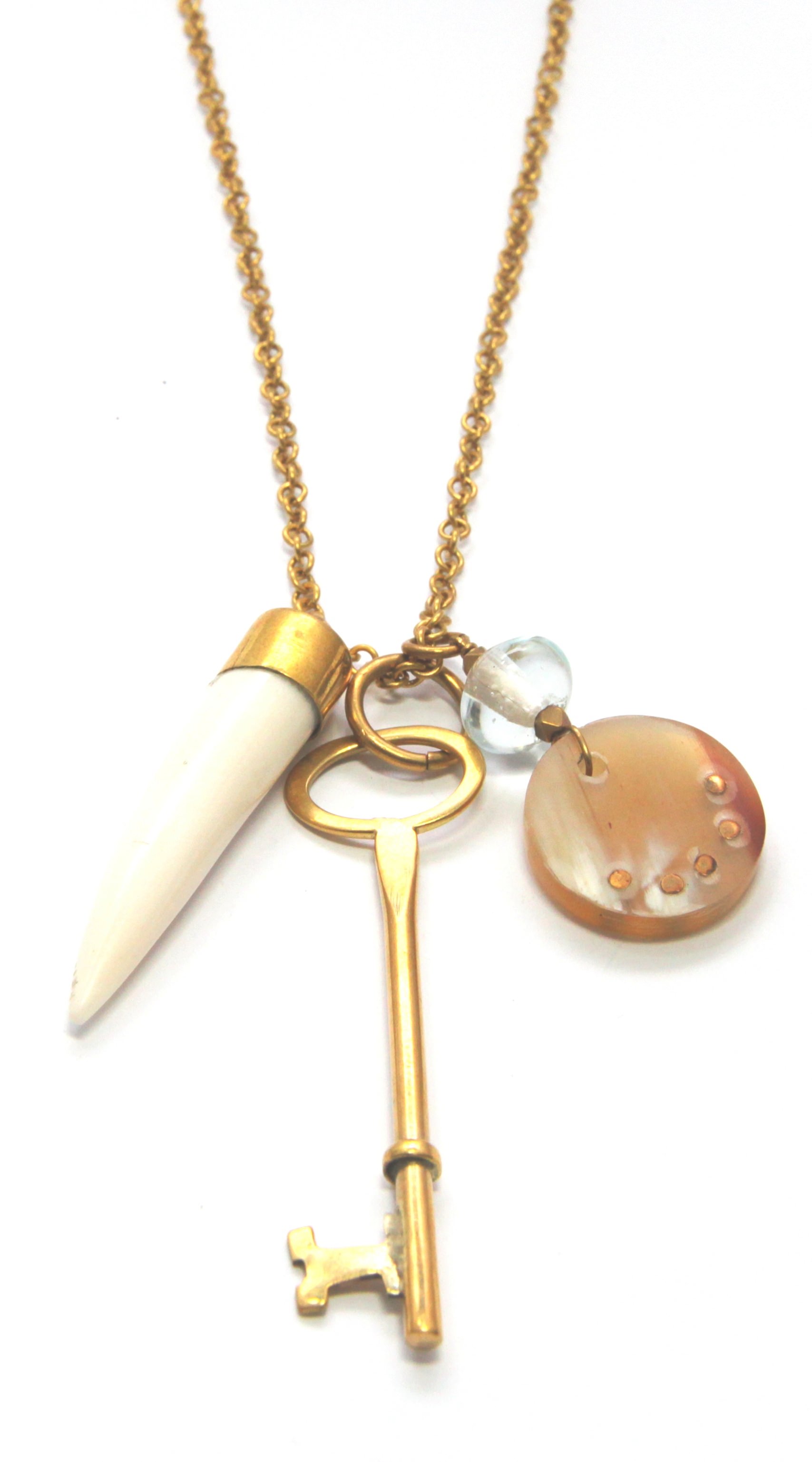For deaf women in Africa, life can be tough and the opportunities for employment and independence extremely limited. But one social entrepreneur, Megan MacDonald of SASA Designs by the Deaf, is making real and lasting change happen for these women by providing meaningful employment, training and a sense of community, plus the ability to support their children and their education.
As part of our focus on game-changing women social entrepreneurs in Africa this month, LoA had the pleasure of talking to Megan MacDonald, founder of Sasa Designs by the Deaf this month to find out more about this amazing enterprise and the significant impact it is making on the lives of deaf women in Kenya.
What does your company do?
I am an accidental entrepreneur in fact! I was originally hired to be the business manager of a small fundraising project for a larger missionary organization. Having focused my M.A. research in Development Studies on ethical and fair trade fashion artisans accessing e-commerce markets, I knew that the project had much greater potential. However, while I deeply believed in the potential for the artisan sector, I was also seeing a lot of projects and brands getting a lot of hype and exposure - but not successfully keeping their partner artisans working consistently. When looking at economic development and trying to help people take steps up the economic ladder, inconsistency in income is one of the biggest impediments to long-term, sustainable change. We've made providing a full-time, consistent salary, a focus at Sasa Designs by the Deaf. We aren't very big, but in the lives of our team of deaf women, we are seeing a credible change in their ability to provide for themselves and their family. We know that the true impact will be in their ability to keep their children healthy and in school - that generation is going to reach entirely new heights because of their mothers' employment.
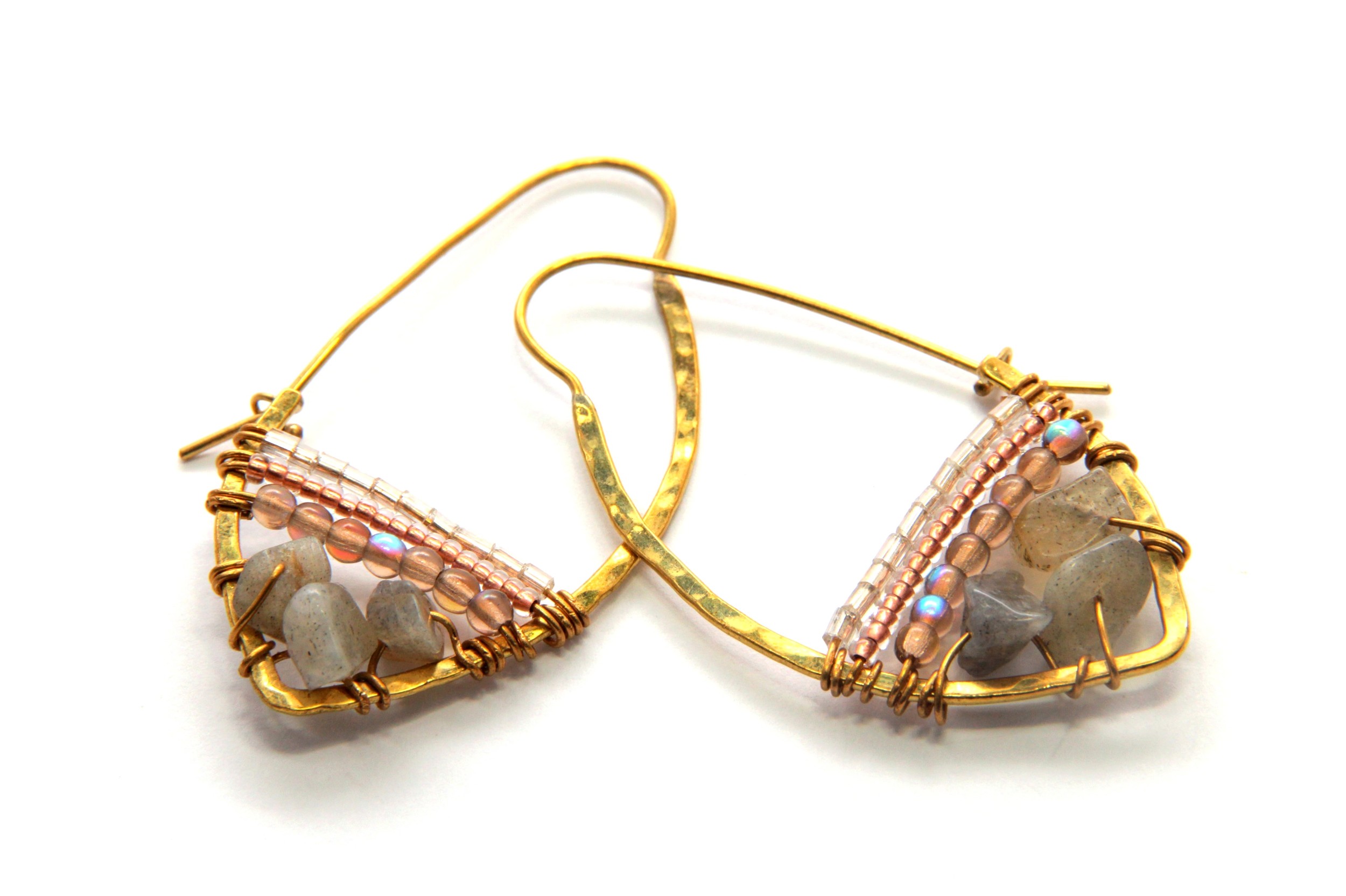
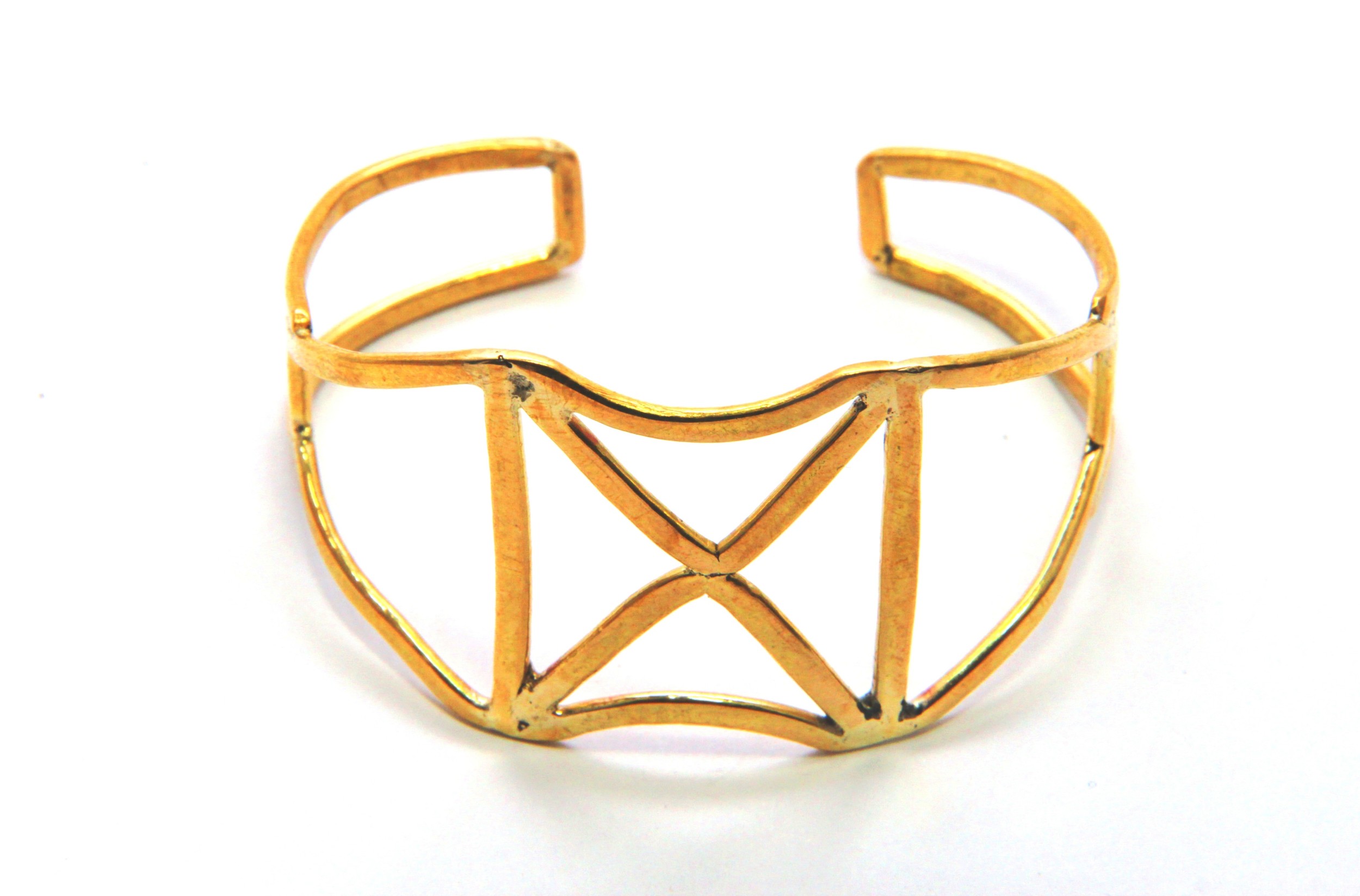
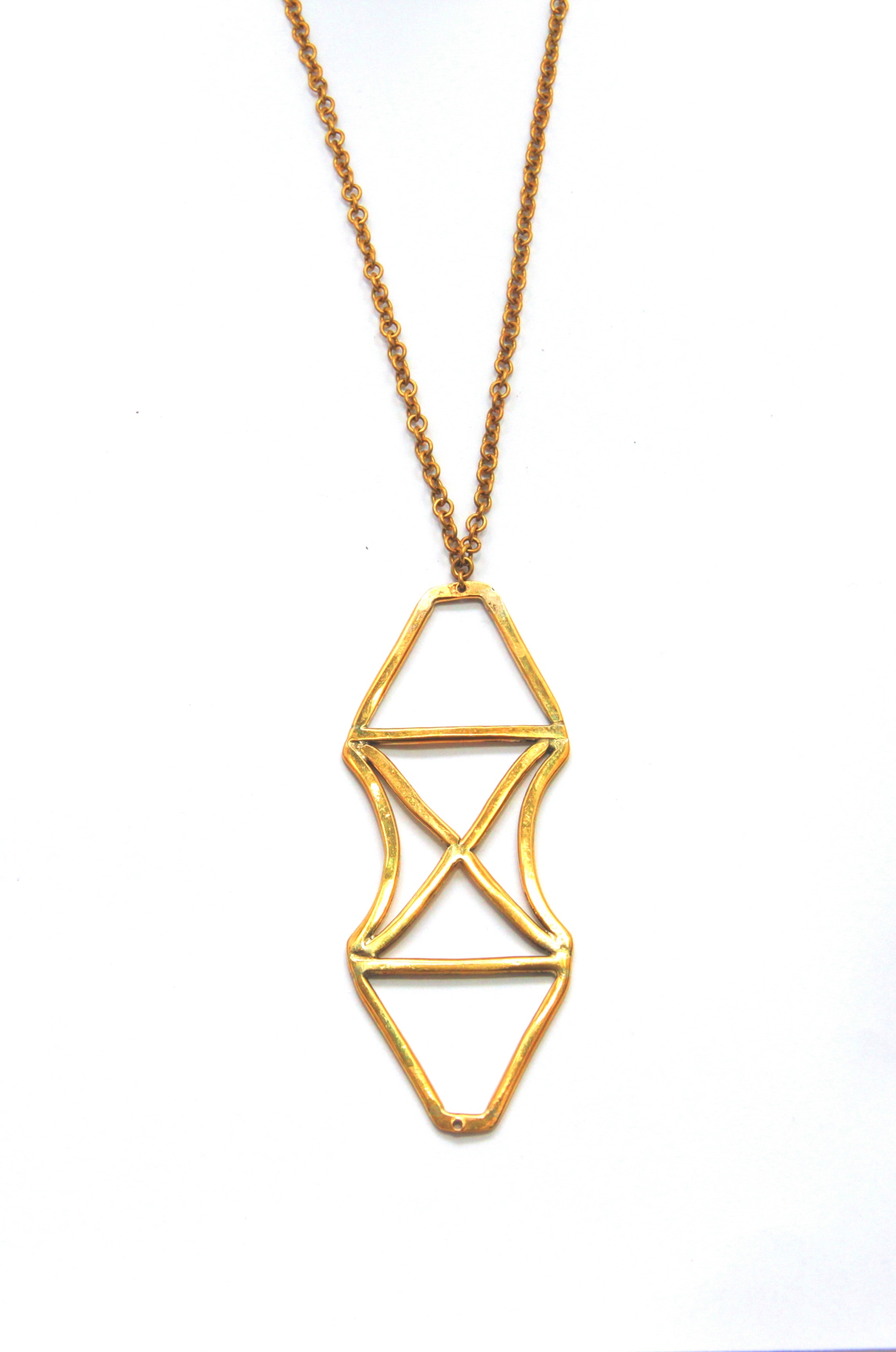
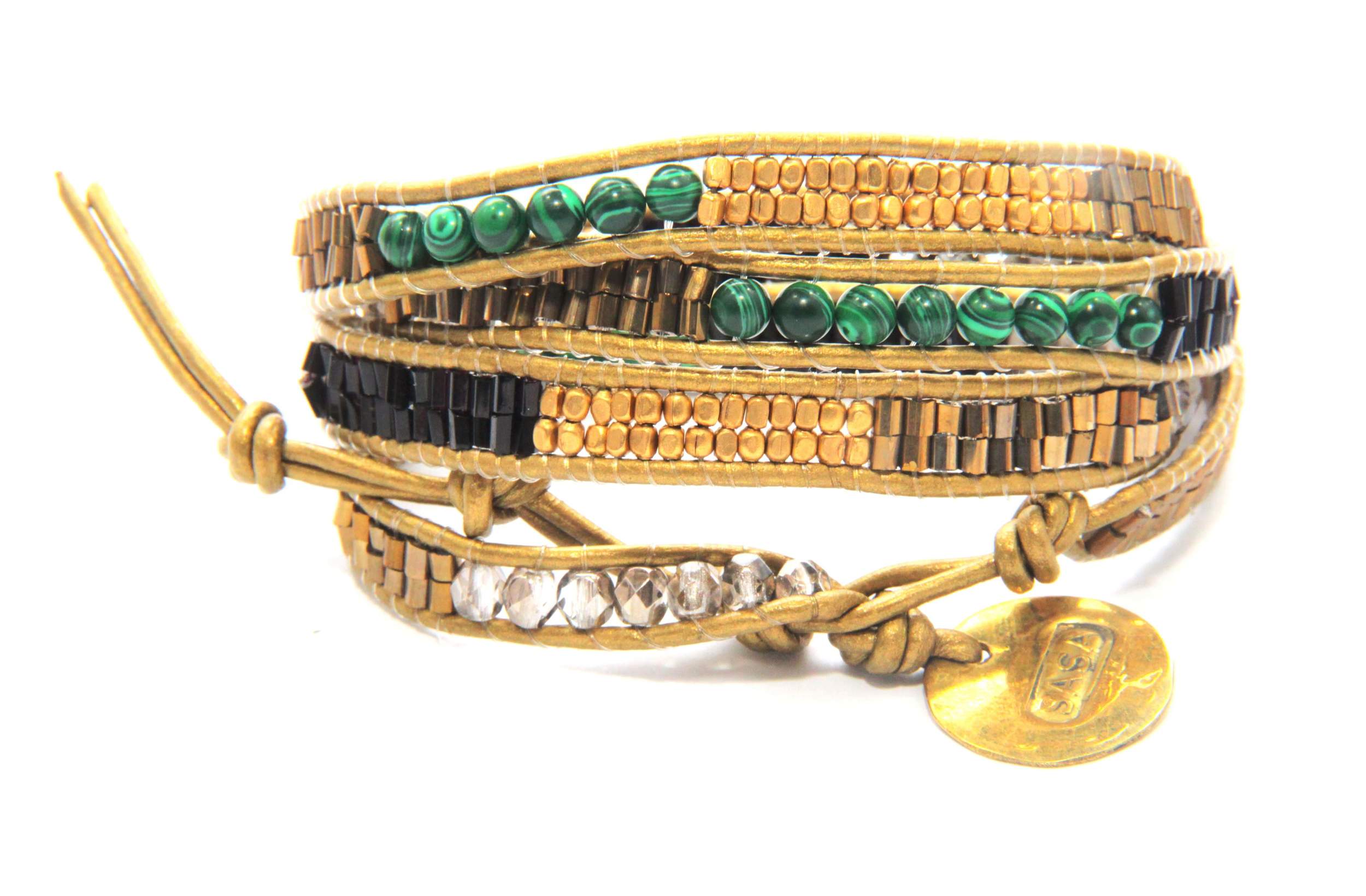
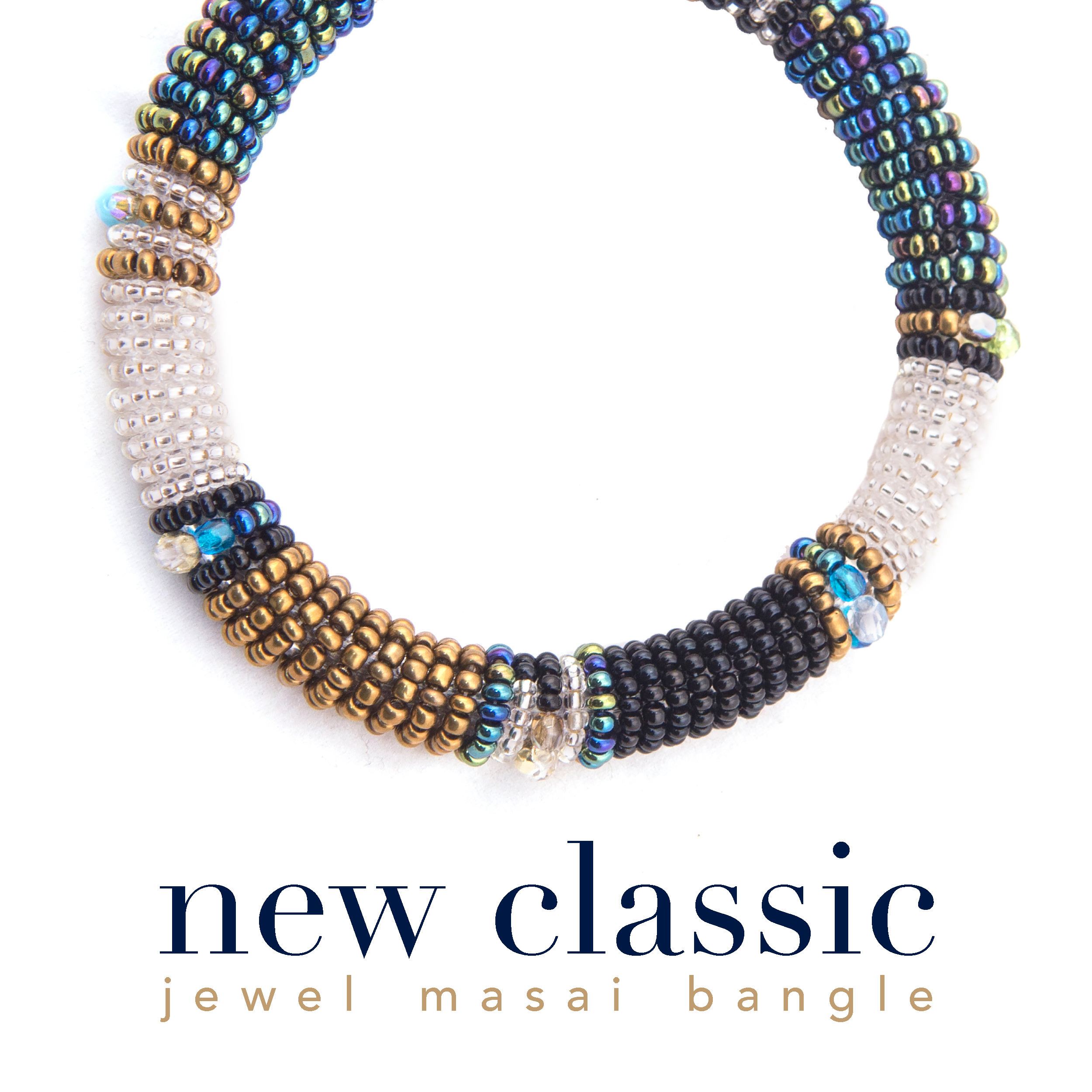
"When looking at economic development and trying to help people take steps up the economic ladder, inconsistency in income is one of the biggest impediments to long-term, sustainable change. We've made providing a full-time, consistent salary, a focus at Sasa Designs by the Deaf."
What inspired you to start your company?
When the sponsoring organization decided to focus their efforts elsewhere, I knew I could not let our team of artisans go back to depending on family or random men to take care of themselves (an all-too unfortunate reality for physically disabled women in Kenya and other developing countries). I have been lucky to identify a few key partners with skills that I do not bring to the table, and this allowed us to incorporate as a new organization. Because we were not yet cash-flow positive, we decided to take a year and operate as a non-profit, in order to ensure we could keep salaries going if we hit a cash crunch. I assembled an amazing board of directors to start exploring options, and I am proud to say that we have recently joined a much larger family of brands. We will move forward with a sustainable business mindset, winding down the non-profit and helping our artisan team in Kenya incorporate independently as a business. This shifts ownership and responsibility to the community the organization was built to serve, while ensuring our team in the US can continue to build the market for their products, and assist with design and sourcing to help them stay competitive.
Why should anyone use your service or product?
Quite frankly, discount culture is ruining the world! It's creating unfathomable amounts of waste - both in the production process and when cheaply made products are discarded after a season (and sometimes less) of use. Corporate structures that support our Target / Walmart / Forever 21 binges (I'm guilty myself!) mean the value of production is captured by the very end stage of the supply chain - not the beginning, where the hardest work is done, and the greatest need exists. While Sasa strives to engage in the mainstream marketplace, we do so with a willingness to accept lower margins for the sake of living wages for our team. We nurture relationships with our wholesale customers so they can in turn share the story of our team with their community. Our immediate impact is quite small - but our model is replicable, and we use our story to advocate at the highest levels of policy - especially in regards to trade and import/export laws that affect groups like ours. In this way - we are proving that the handiwork of a dozen or so deaf women who would otherwise be silently overlooked on the world stage, is instead contributing to a growing handmade arena that represents $34b in annual commerce.
"We are proving that the handiwork of a dozen or so deaf women who would otherwise be silently overlooked on the world stage, is instead contributing to a growing handmade arena that represents $34b in annual commerce."
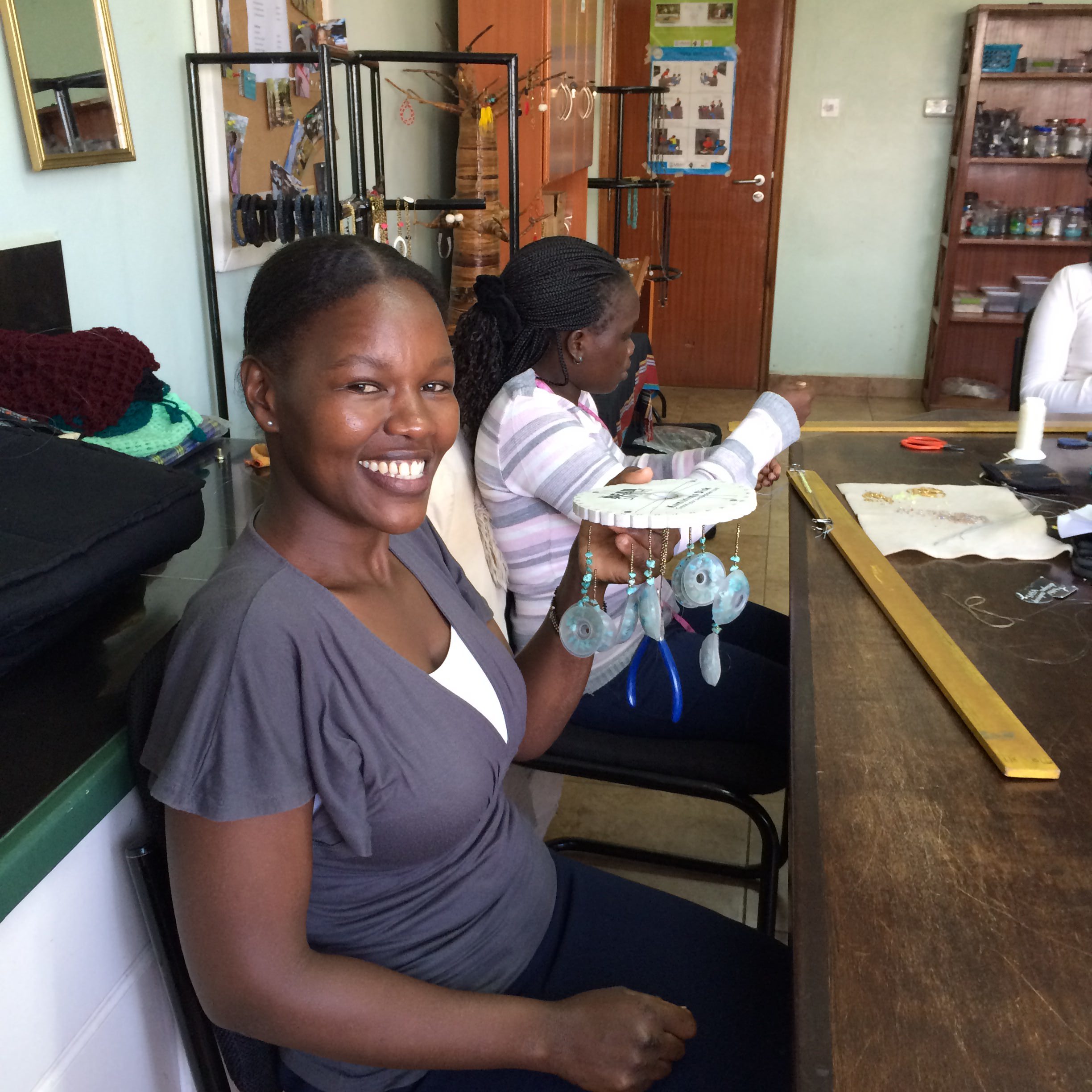
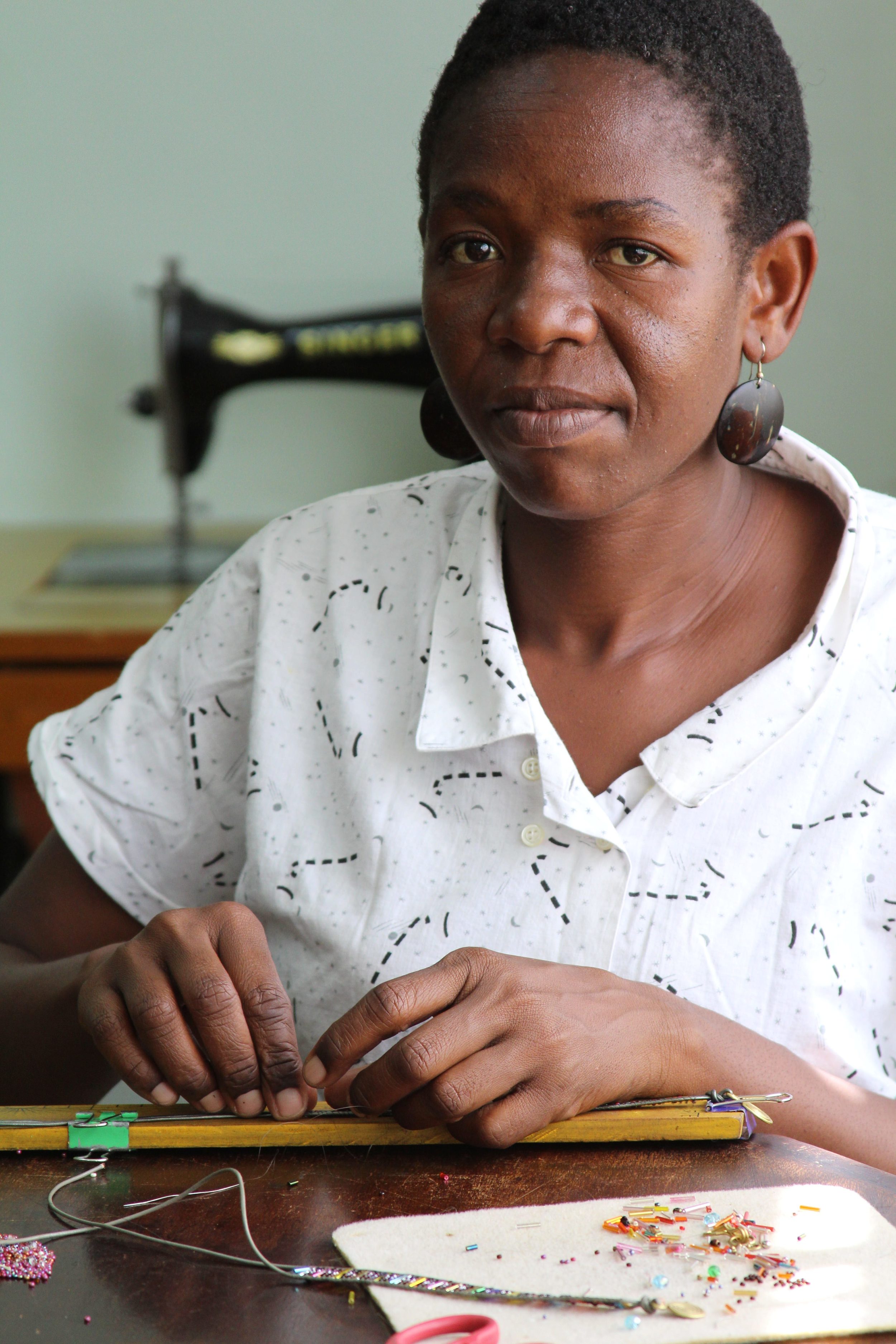
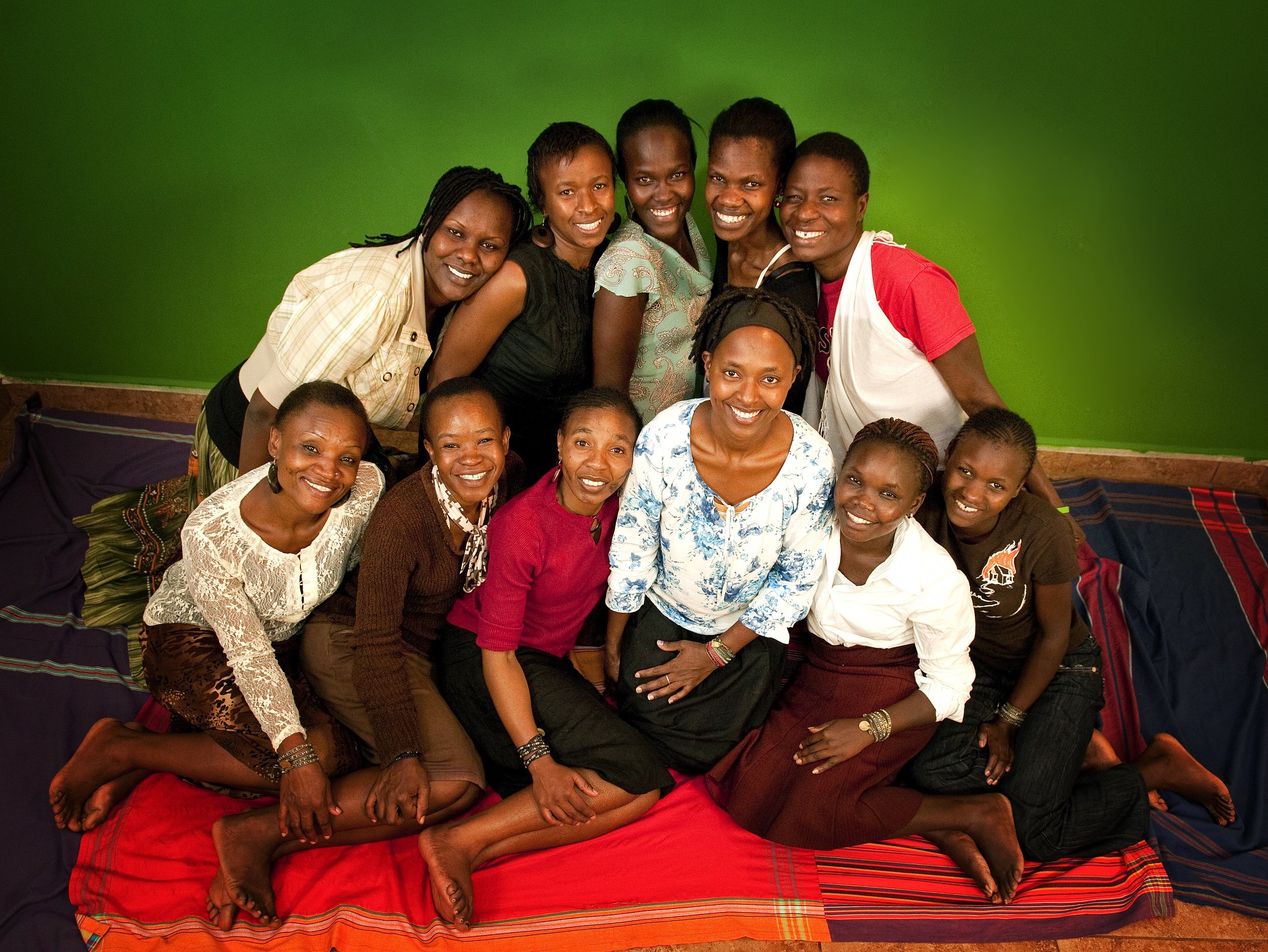
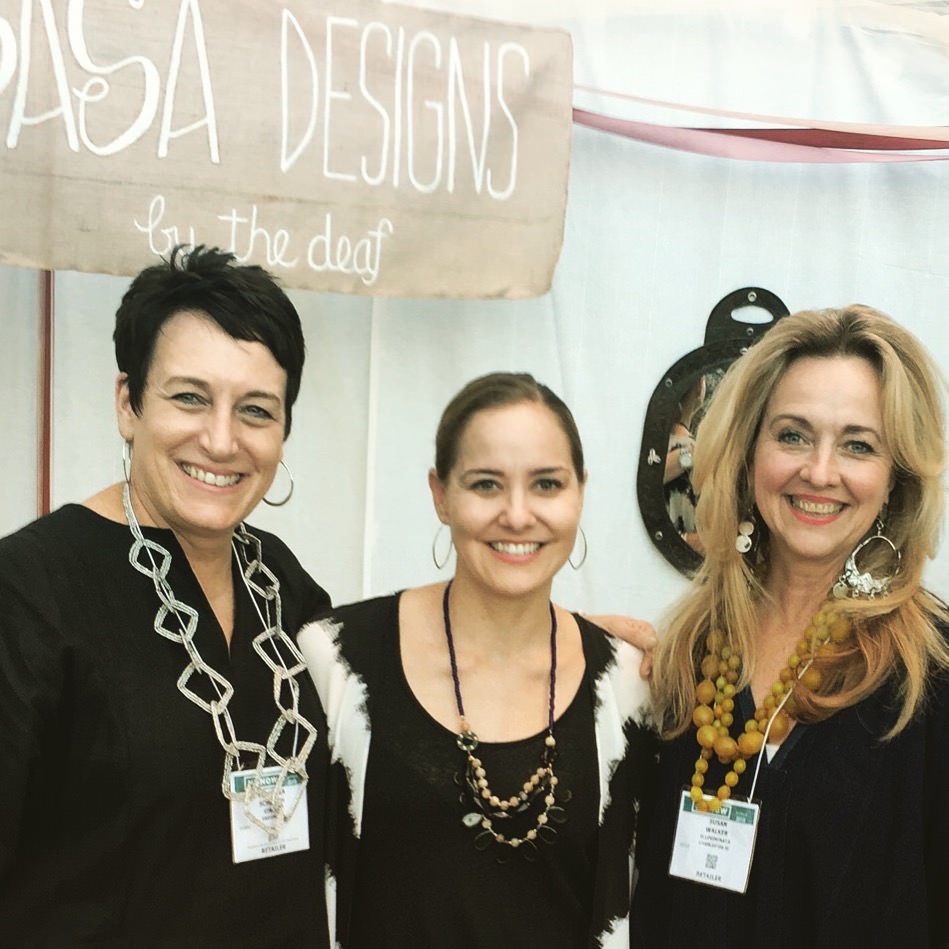
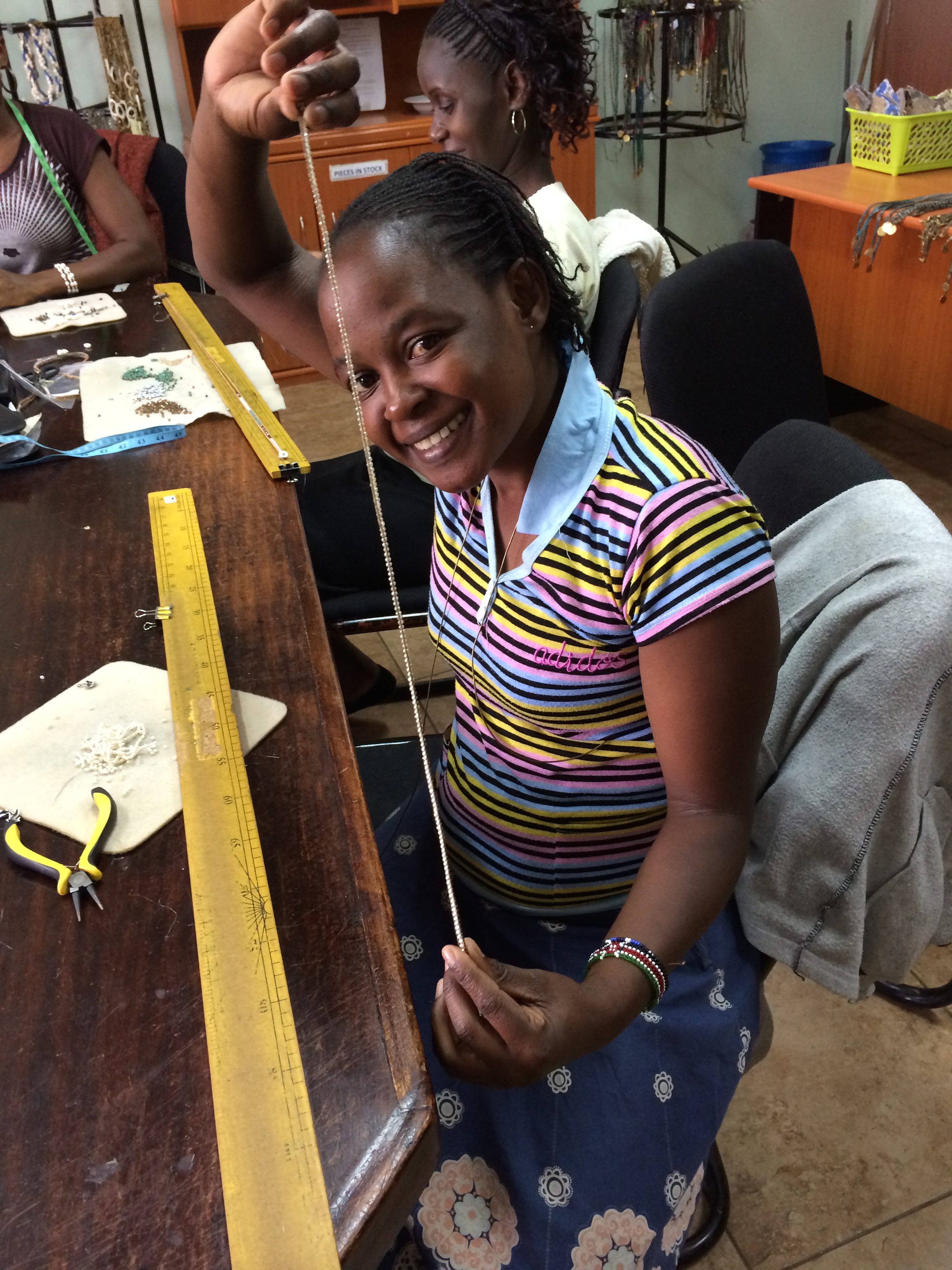
Tell us a little about your team
In Kenya, we have a small workshop led by our two Lead Artisans (both deaf), Susan and Penninah, and supported by a hearing business manager, who helps communicate with customers and vendors. Some of our artisans have been with us from the beginning - like Virginia, who is working on her own jewelry line and taking a small loan to begin selling her designs locally. Virginia has proven to be an excellent designer and highly skilled - we are thrilled to see her take this step! In the US, we have a sales and marketing manager, Paige Pelot, on the East coast and a trio of incredibly dedicated administrative, financial and design consultants who support me as I attempt to steer the ship. We are excited to have recently joined the Greater Good Wholesale family of brands, alongside long time artisan powerhouse Stacey Edgar and her line, Global Girlfriend. It is an honor to introduce our team in Kenya to the larger marketplace via this partnership - and we are also beginning to add to our line with some artisans in a very remote village in Haiti. It's a very, very exciting time for Sasa Designs!
Share a little about your entrepreneurial journey. And, do you come from an entrepreneurial background?
To be honest, I was too afraid for many years to pursue a career in the arts, or to start my own organization. Studying and working in the development sector, I've seen more organizations started to address so many unique problems than need to exist, that I didn't want to create another vehicle to chip away at funding and community interest. At heart, I believe in collaboration - and that if you have an idea, there's probably someone out there that has a better one - or at least to join efforts and resources with. Now, a few years into this, I've come to terms with a belief that if we have an inkling to do something in us - we better not fight it. I feel incredibly lucky to be able to bring design and creativity into my daily work, and to have the opportunity to be considered a leader to a team of women in two (and now three!) countries that I deeply respect and admire. I do recognize that I am very early in this journey, and try to educate myself as much as possible - formally and informally. Last year I completed the Ignite Certificate of Entrepreneurship program at Stanford's Graduate School of Business (a mini MBA, if you will) and I take every opportunity I can to engage with entrepreneurs in arenas similar and wildly divergent from my own. There are so many incredible people doing incredible things - I'll never stop looking to them for inspiration and insight.
"There is nothing like seeing a woman experience her independent ability to support herself and her children as it evolves from a place of dependency."
What are your future plans and aspirations for your company?
We are hoping to expand our product offerings to a bit more of a lifestyle brand - featuring accessories from the most physically and geographically isolated artisans we encounter. We know how hard it is to make handmade products work on the global scale - we're taking no even bigger challenges to serve these highly capable and uniquely skilled individuals. The only way we can do this is through excellent pricing, creative sourcing, strategic partnerships and constant evolution of our processes and procedures. We'll be sharing the first round of new products in development with our new artisan partners in Haiti at the NY Gift show the last weekend of January, and are excited to engage our customers and partners in the future shape of our company.
What gives you the most satisfaction being an entrepreneur?
There is nothing like seeing a woman experience her independent ability to support herself and her children as it evolves from a place of dependency. There is no sense in many of our team’s deafness - much of it could have been prevented if they were born in a place with better access to medical care or immunizations. And yet, there they are - a woman in an underdeveloped country, with another strike against her. She grows up being treated as if she's stupid and a burden. She is often completely isolated until teenage years or sometimes even adulthood, when she may discover a deaf community and begin to learn Kenyan Sign Language. But without work, she will never understand that she is absolutely capable of taking care of herself. She is ok, just as she is. I will never get over the honor and privilege it is to see this transformation. I hope I can someday live up to my team's potential and learn how to give them so many more resources to regain what their lack of hearing has threatened to take from them.
"Make sure you have some cheer leaders as you will feel like a failure roughly 90% of the time."
- Megan MacDonald, founder @SasaDesigns
What's the biggest piece of advice you can give to other women looking to start-up?
Your team is critical - don't do this alone. Do your research - see who is already undertaking the problems you want to solve, and join them if you can. Even if you start something later - you'll be that much more prepared in the meantime. Figure out where your passion is in the process, and look for a team that can round out the pieces that don't drive you. Make sure you have some cheer leaders as you will feel like a failure roughly 90% of the time. CELEBRATE when you have victories. Remember who you serve. Let yourself fail. Let yourself move on or take space when you need to (this can be the hardest thing to do). Ask for feedback. Have an exit strategy - not because you have to or will want to, but because it's the best way to create something sustainable and replicable - and if you do a good job, the world needs more of what you create.
Contact or follow Sasa Designs by the Deaf
Why LoA loves it….
There is much talk right now about the need to make a greater socio-economic impact in Africa, to improve lives, create greater access to opportunity, and to empower women to become financially independent through their own efforts and enterprise. Yet, there is something incredibly inspiring about seeing a woman entrepreneur who is making such a profound impact on the lives of a group of women who were disadvantaged and marginalised because of their inability to hear. Megan MacDonald personifies the term ‘ChangeMaker’ as she is making real and positive change happen in the lives of Kenya’s deaf women, empowering them to fulfil their potential, take control of their lives, and ensure a better life for their children in the future. As Megan so elegantly puts it, now is the time for these amazing deaf women artisans to shine. Truly inspirational! --- Melanie Hawken, founder and editor-in-chief of Lionesses of Africa



